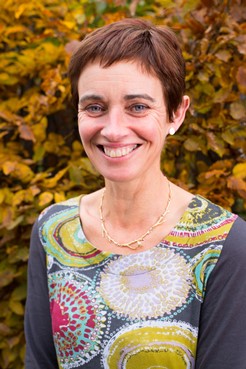June 2019
Conservationists and farmers are often pitted as opponents in the conversation over the future of farming policy and our environment. But in-depth research of 500 farmers across England, commissioned by Wildlife and Countryside Link, shows that there is much more that unites than divides farmers and nature experts.
80% of farmers surveyed recognise the strong link between the health of the natural environment and the success of their farm businesses. Strong support also exists for standards to be protected with two thirds of farmers stating that regulation is important or very important and half of farmers agree with the principal of ‘public money for public goods’, more than twice the number (19%) one who disagree with it.
As I write, farmers are facing what may become the wettest June on record and this follows the ‘beast from the East’ and last summer’s drought. Our survey reflected this issue with farmers reporting an increase in weather volatility only second to increased costs and reduced profit margins as their most common problem. The effects of climate change are starting to have an impact on farm sustainability and this, coupled with the uncertainty of Brexit and future policy support, means many farmers want to change how they farm.
But as our survey showed, currently many farmers only undertake limited environmental action, with a third of farmers currently taking no environmental action to deal with problems on their farms at all. When asked why, a lack of access to capital (41%) and the uncertainty caused by Brexit (41%) were cited as by far the biggest barriers to making environmental and other improvements to their farm business.
Certainly this is reflected in my own experience of encouraging farmers to implement agroforestry; a land use system that enhances farm productivity whilst delivering a range of public goods, including climate change mitigation and animal welfare improvements. Agroforestry options receive no support in current policy. Yet when the Woodland trust was able to offer farmers advice and subsidised trees (funded by a corporate partner), demand was high. Our Trees for your Farm programme has helped 66 farmers create agroforestry systems resulting in the planting of over 100,000 trees. We have a pipeline of applications awaiting funding for the next planting season.
There is also hope, as while the politicians argue over the political future of our country, farmers are starting to take action.
It is only 18 months since the Nature Friendly Farming Network (NFFN) was launched, championing a way of farming which is sustainable and good for nature. But already it is enabling its 700 farm business members to have a strong voice in policy debate and is inspiring the public about a future where farming and nature work hand in hand. And this week, it is expected that 1500 farmers will attend Groundswell. An event started only 4 years ago by farmers for farmers interested in conservation agriculture. Based on a farm it provides a forum for anyone interested in food production and the environment to learn about the theory and practical applications of techniques including no-till and use of cover crops.
Farmers are key guardians of our environment, and this research shows they know it is vital to our farming future to prioritise fixing the natural resources which farms rely on. As the Agricultural Bill awaits its next stage in Parliament, we have a once in a generation opportunity to put the environment at the core of public funding for farming. Rewarding the sector in the delivery of public goods, including healthy soils, clean water, sustainable, responsibly and humanely produced food; and enhancing wildlife, plants and landscapes we all enjoy and want to access.
Let’s work together shape the future of farming into what we want to see: a future where farming and nature work hand in hand.
Helen Chesshire, Senior Farming Advisor, Woodland Trust and Chair of Wildlife and Countryside Link’s Agriculture Group.
Helen grew up on a dairy and sheep farm in the Midlands.
Follow at @chesshire_helen & @WoodlandTrust
The opinions expressed in this blog are the author's and not necessarily those of the wider Link membership.




Latest Blog Posts